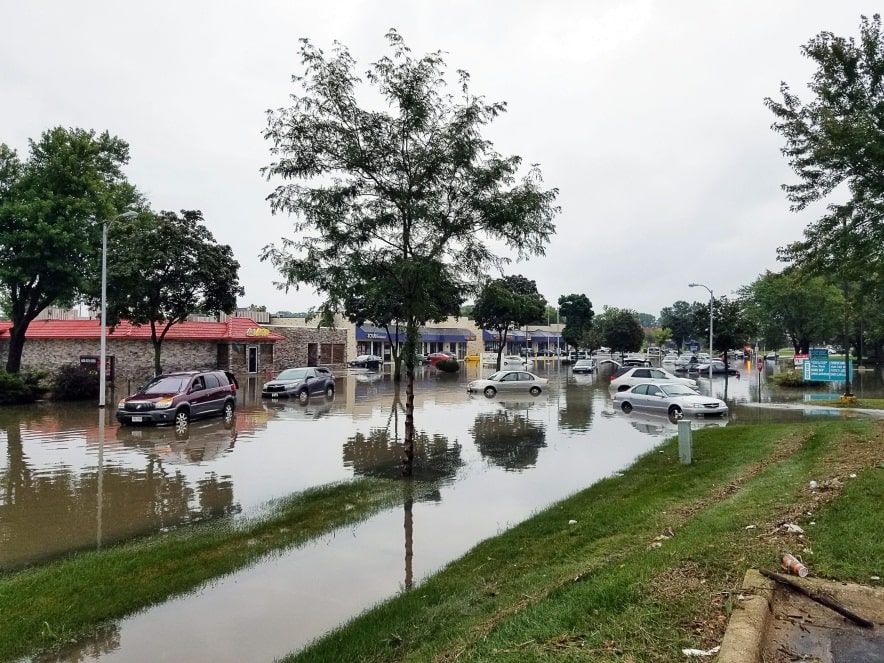Floods can happen unexpectedly, causing significant damage to homes and disrupting lives. While you can’t control the weather, you can take proactive steps to minimize the impact of flooding on your property.
Preparing your home for flood season involves a combination of preventive measures, maintenance tasks, and emergency planning. Let’s dive into the essential steps to safeguard your home against floods and minimize the need for water damage restoration.
1. Know Your Enemy: Flood Risk Assessment
Before diving into specific measures, it's crucial to understand your flood risk. Here's how to do a quick assessment:
Location, Location, Location: Check your local flood maps to know if you're in a high-risk zone.
Talk to the Old Timers: Ask your neighbors about past floods in the area. Their firsthand experience can be invaluable.
Elevation Matters: If you live on a slope or hill, you're probably less at risk. But even a slight incline can make a difference.

2. Exterior Efforts: Keeping the Water Out
Now that you have a sense of your risk, you should focus on keeping the water at bay.
Gutter Guardians: Clean your gutters regularly! Clogged gutters create waterfalls around your house, which can seep into basements or crawlspaces.
Downspout Direction: Make sure your downspouts direct water away from your house foundation. Extend them if necessary, aiming for at least six feet away from the building.
Sealing the Deal: Inspect your foundation for cracks and seal them with waterproof caulk. This prevents water from infiltrating through tiny openings.
3. Basement Blues: Protecting Your Lower Level
Here are some additional tips if you have a basement:
Sump Pump Savior: If you don't have one, consider installing a sump pump. This magical machine pumps out any water that accumulates in your basement before it becomes a problem. For ultimate peace of mind, get a sump pump with a battery backup in case the power goes out during a flood.
Backflow Valve Blocker: A backflow valve prevents sewage from backing up into your drains during a flood. It's a worthy investment for added protection.
Elevate Your Valuables: Store important belongings and electronics on higher shelves or platforms in your basement. Every inch counts when the water rises!

4. Flood Insurance: A Safety Net
Standard homeowner's insurance doesn't typically cover flood insurance. However, it's a crucial investment in flood-prone areas. Contact your insurance agent to explore flood insurance options and discuss your specific needs.
5. Create an Emergency Kit: Be Prepared, Not Scared
Even the best-laid plans can sometimes go awry. Having an emergency kit on hand can give you peace of mind and ensure you're ready for the unexpected. Here are some essentials to include:
- Bottled water (one gallon per person per day for at least three days)
- Non-perishable food (enough for three days)
- First-aid kit
- Medications (a week's supply)
- Flashlight and batteries
- Cash (ATMs might not be working during a flood)
- Important documents (copies of insurance, IDs, etc.) in a waterproof container

6. Make a Plan: Don't Wing It!
Having a plan in place before the flood hits is crucial. Discuss evacuation routes and meeting places with your family. Additionally, identify a haven for your pets if you need to evacuate.
7. Stay Informed: Knowledge is Power
During flood warnings, stay glued to weather reports and local news for updates. Heed evacuation orders promptly and didn't attempt to drive through flooded roads.
8. After the Flood: Recovery and Moving Forward
The floodwaters may recede, but the work isn't over. Here are some post-flood tips:
Safety First: Turn off utilities before entering your flooded home. Contact a professional electrician and plumber to inspect the systems before turning them back on.
Document Everything: Take photos and videos of the damage for insurance purposes.
Start Drying Out: Open windows and doors to promote ventilation. Remove wet carpets and furniture to prevent mold growth.
Seek Help: Don't be afraid to ask for assistance from friends, family, or professional cleanup services.
Protect Your Home from Flood Damage Today!
Ready to safeguard your home against flood season? Don't wait until it's too late. Contact NYWaterDamage911 for expert advice and water damage restoration services. Ensure your home is ready with flood insurance, maintenance, and our emergency cleanup and restoration services. Stay safe and secure with our cleanup and restoration company in New York.
About the Author
As a seasoned content writer, the author specializes in creating informative articles that empower homeowners to safeguard their properties. With a focus on practical advice and proactive solutions, they aim to help readers prepare for potential challenges like flood season with confidence and clarity.





